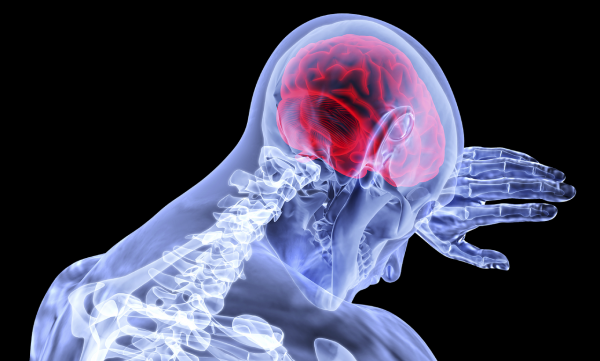A New Research Finding Says Parasite in the Brain Is Not Making One Sick

Researchers from UVA discovered that parasite ‘Toxoplasma gondii,’ is said to be kept in check by defenders of brain also known as ‘microglia.’
Latest reports present over 30 million Americans are infected with a brain parasite transmitted by cats and contaminated meat, although most of them, not showing any symptom.
A new finding from the School of Medicine at the University of Virginia explains the reason for such occurrence and why it is not showing symptoms, and that the discovery could have vital implications for "infections in the brain, neurodegenerative illnesses and autoimmune disorders."
The said researchers from UVA discovered that parasite Toxoplasma gondii is said to be kept in check by defenders of the brain, also known as "microglia."
Such release a release of microglia is a distinctive immune molecule called the "IL-1a," recruiting immune cells coming from the blood, the scientists found, to control parasite in the brain.
This process effectively works that only a few individuals develop symptoms. The illness that Toxoplasma gondii causes is called "symptomatic toxoplasmosis."
ALSO READ: Research Finds Moderate Exercise Helps Lower Side Effects of Prostate Cancer Treatment
The Role of 'Microglia'
Experts explain that understanding further, the role of "microglia" is important as they are typically the lone immune cells inside the brain.
Additionally, this new study finding shows how these immune cells are recruiting help when needed, and that this particular finding could to any condition of the brain with a so-called "immunological component" which includes brain injury, neurodegenerative illness and stroke, among others.
According to Tajie Harris, PhD, from the Department of Neuroscience at UVA, microglia needs to die so it can save the brain from the infection.
Harris, who is also the Center for Brain Immunology and Glia or BIG's interim director also said, "Otherwise the IL-1a stays trapped" inside these lone immune molecules, and would not alert the alert system that something's not right.
The Link Between Brain and Immune System
The Department of Neuroscience at UVA and the BIG center have both, in the past years, entirely rewritten the understanding of the relationship between the brain and the immune system of the body.
For several decades, textbooks showed that the brain was not linked to the immune system. Nevertheless, these UVA scientists presented, that was not the case and this shocked most people from the scientific community.
To date, a lot of researchers are also discovering the implications of this major and most recent discovery.
As indicated in the research finding, one area of focus is microglia and their function in protecting the brain.
DON'T MISS THIS: BCI Restores a Paralyzed Man's Sense of Touch
An Elegant Approach Methodology
Reports on this discovery state, Samantha Batista, UVA researcher and a graduate student at Harris' laboratory, used a sophisticated methodology that leveraged microglia's long-lived nature to understand further their function in brain infection.
She, together with her colleagues, discovered that the infection let the microglia to die in what they described as an "inflammatory fashion," a manner that the "closely-associated immune cells do not."
The researchers were able to determine that the microglia were bursting so they could recruit immune cells known as "macrophages" to control the infection of "Toxoplasma gondii."
This discovery helps in explaining the reason most people are not experiencing any trouble when controlling the parasite, while the others, especially those who are "immunocompromised" can turn very ill.
The Discovery, an Advantage
Batista explained understanding pathways like their discovery could be advantageous for other illnesses engaging "neuroinflammation."
Furthermore, Harris, Batista and all the other researchers who are part of this collaboration are now interested in understanding the manner of detecting of microglia of parasites in the brain.
Relatively, microglia could identify the presence of the parasite directly, or they could determine impairment to brain tissue, a phenomenon taking place in many other illnesses.
Also, a part of the Carter Immunology Center of UVA, Harris said, "The immune system" needs to enter the brain to combat dangerous inflammation.
He added, they now understand how microglia are alerting for protection of the brain. More so, they suspect that the same signals are either "missed or misinterpreted" in Alzheimer's disease, welcoming a promising new study opportunity in the lab.
IN CASE YOU MISSED THIS: A Rare Condition of Brain Fluid Leaking Due to Pilates? Here's What You Need to Know
Jul 30, 2020 10:28 PM EDT





